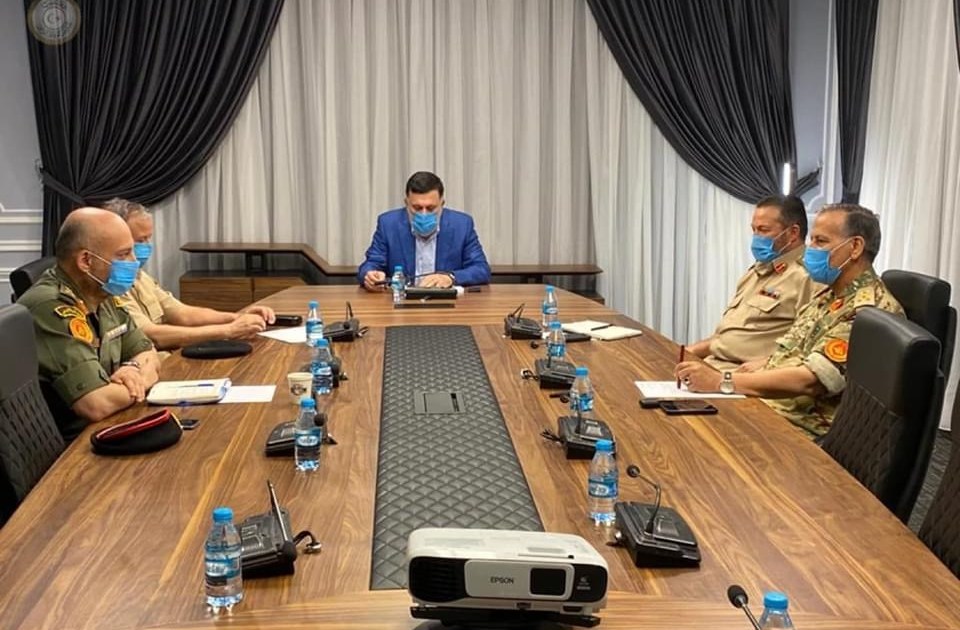The President of the Presidential Council of the National Accord Government in Libya, Fayez al-Sarraj, discussed with military officials the readiness of the forces, while his government broadcast pictures of Haftar's reinforcements destined for Sirte, and the Presidential Council rejected the conditions of Haftar to open the oil ports.
As the Supreme Commander of the Libyan Army, al-Sarraj discussed with military officials the military situation in the country in general, the readiness of forces in various regions, the conduct of operations in the Sirte al-Jafra region, as well as a review of procedures to secure the liberated areas.
Al-Sarraj discussed with the military in his government the organization of the military establishment and mechanisms for implementing the program of merging and assimilating the supportive military formations, and the programs of developing the military defense capabilities of Al-Wefaq forces, within the framework of partnership programs with a number of friendly countries.
The meeting was attended by the commanders of the Western Military Territories, Tripoli and the Central, and the commander of the Sirte Jafra Operations Room.
The "Anger Volcano" operation room of the National Accord government published photos it said were circulating on social media sites, about the crowds of retired Major General Khalifa Haftar's forces with armed vehicles and two Russian-made "Panzer" air defense systems.
The Operation Berkane Fury on its Facebook page added that these military reinforcements of Haftar forces are heading to the city of Sirte in central Libya, which is occupied by Haftar forces backed by the mercenaries of the Russian company "Wagner", the Janjaweed and Syrians.
For his part, Turkish Foreign Minister Mevlüt Çavuşo أوlu reiterated his country's position in support of the Al-Wefaq government, and said that the Libyan government does not accept a ceasefire in the country unless the Haftar militia withdrew from Sirte and Al-Jafra, and returned to the Skhirat agreement line.
Ihsanoglu warned - in an interview with the British Financial Times - that the escalation of tensions could lead to a direct conflict between foreign forces supporting the various parties in Leba.
Haftar refused terms
Meanwhile, the head of the Supreme Council of State in Libya, Khaled al-Mashri, who was re-elected today to this position, rejected the condition that Haftar put in place to reopen the oil ports.
Haftar's forces announced the closure of all oil facilities in Libya until the conditions of the Al-Wefaq government implemented conditions, including the opening of a bank account in a foreign country devoted to oil revenues.
The announcement came just hours after the National Oil Corporation lifted the force majeure case of oil fields and ports.
But Al-Mashri considered that opening an account outside the country to deposit oil revenues violated Libyan sovereignty, and he said that Haftar does not have the ability to close or open the oil, but rather an instrument in the hands of another country.
The institution overseeing the oil fields and facilities in Libya had earlier confirmed the entry of Russian mercenaries and other nationalities to oil fields in the country, a move that met Western criticism.
For its part, Britain called the Libyan parties to a dialogue led by the United Nations in order to agree on energy revenues.
The British Embassy in Tripoli said - in a statement - that "a fair distribution of oil and gas revenues will be an important step towards achieving a lasting political settlement in Libya." Britain also welcomed the announcement by the National Oil Corporation on Friday to raise the status of force majeure and resume work in the Crescent Petroleum.

